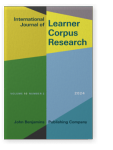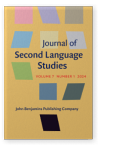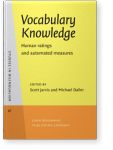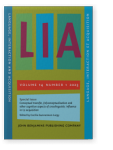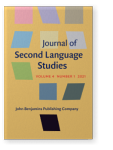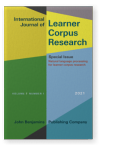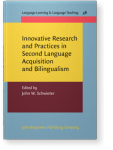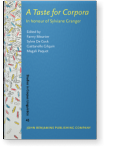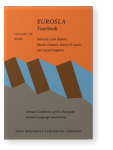Scott Jarvis
List of John Benjamins publications for which Scott Jarvis plays a role.
Journals
ISSN 2542-3835 | E-ISSN 2542-3843
Title
Vocabulary Knowledge: Human ratings and automated measures
Edited by Scott Jarvis and Michael Daller
[Studies in Bilingualism, 47] 2013. viii, 220 pp.
Subjects Computational & corpus linguistics | Language acquisition | Multilingualism | Psycholinguistics
2023 Conceptual transfer: Roots, assumptions, and current scope Conceptual transfer, (re)conceptualisation and other cognitive aspects of crosslinguistic influence in L2 acquisition, Gunnarsson-Largy, Cecilia (ed.), pp. 14–40 | Article
This article provides updated perspectives on research related to conceptual transfer, which is defined as crosslinguistic influence arising from language-specific concepts and patterns of conceptualization. I discuss the historical roots of conceptual transfer, its relationship to linguistic… read more
2021 Conceptual meaning in Italian speaking learners’ expression of temporality in L2 English Journal of Second Language Studies 4:1, pp. 121–153 | Article
This study explores conceptual meaning in the construal of distinct temporal concepts by L1 Italian speakers, and considers the possibility that L1 constrained perspectives may influence the L2 English production of these speakers in the form of Conceptual Transfer (CT). Adopting a Cognitive… read more
2021 How operationalizations of word types affect measures of lexical diversity Natural language processing for learner corpus research, Kyle, Kristopher (ed.), pp. 163–194 | Article
This study tests three measures of lexical diversity (LD), each using five operationalizations of word types. The measures include MTLD (measure of textual lexical diversity), MTLD-W (moving average MTLD with wrap-around measurement), and MATTR (moving average type-token ratio). Each of these… read more
2013 Chapter 1. Defining and measuring lexical diversity Vocabulary Knowledge: Human ratings and automated measures, Jarvis, Scott and Michael Daller (eds.), pp. 13–44 | Chapter
Most existing measures of lexical diversity are either direct or indirect measures of the proportion of repeated words in a language sample, and they tend to be validated in accordance with how well they avoid sample-size effects and/or how strongly they correlate with measures of knowledge and… read more
2013 Introduction Vocabulary Knowledge: Human ratings and automated measures, Jarvis, Scott and Michael Daller (eds.), pp. 1–12 | Article
2013 Chapter 13. Cognitive foundations of crosslinguistic influence Innovative Research and Practices in Second Language Acquisition and Bilingualism, Schwieter, John W. (ed.), pp. 287–308 | Article
Most previous research on crosslinguistic influence (CLI) has focused on the linguistic consequences of CLI, but researchers have also begun to investigate the cognitive processes through which it occurs. This chapter is a state-of-the-art review of empirical research that has examined the… read more
2013 Chapter 2. From intrinsic to extrinsic issues of lexical diversity assessment: An ecological validation study Vocabulary Knowledge: Human ratings and automated measures, Jarvis, Scott and Michael Daller (eds.), pp. 45–78 | Chapter
Issues of lexical diversity assessment have only been addressed with consideration of the approach, rather than the corpus. Of necessity, intrinsic issues of lexical diversity related to the approach needed to be addressed first; however, given that they now have received due attention in recent… read more
2011 Data mining with learner corpora: Choosing classifiers for L1 detection A Taste for Corpora: In honour of Sylviane Granger, Meunier, Fanny, Sylvie De Cock, Gaëtanelle Gilquin and Magali Paquot (eds.), pp. 127–154 | Article
2010 Comparison-based and detection-based approaches to transfer research EUROSLA Yearbook: Volume 10 (2010), Roberts, Leah, Martin Howard, Muiris Ó Laoire and David Singleton (eds.), pp. 169–192 | Article
This paper offers a number of refinements to Jarvis’s (2000) methodological framework for investigating cross-linguistic effects. According to the original framework, there are three potential consequences of cross-linguistic effects, and any compelling argument for or against the presence of such… read more
